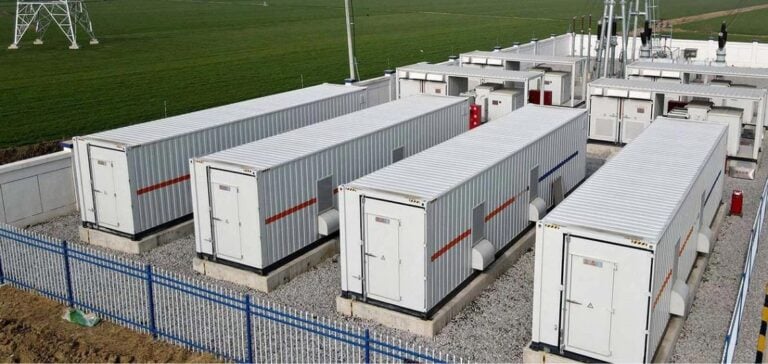Uniper and NGEN announce their partnership to build an energy storage system on the site of the Heyden power plant in Petershagen. The project, with a capacity of 50MW/100MWh, is scheduled to be operational in 2025. Energy storage systems play a crucial role in making more efficient use of power generation facilities, by enabling energy to be stored for later use. This storage capacity facilitates the integration of renewable energy sources by balancing their intermittent nature, thus guaranteeing a reliable and flexible power supply. What’s more, these systems help improve grid stability.
The benefits of energy storage
Jan Taschenberger, COO of New Green Power & Gas at Uniper, emphasized the importance of this project for the company’s green growth strategy. “We are delighted to be carrying out this project with NGEN. Energy storage plays a key role in the development of Uniper’s green growth activities. By using cutting-edge technologies and our expertise to develop sustainable solutions, we will play a central role in shaping the future of energy in Germany.” This project also marks NGEN’s entry into the German market, with the opening of its first office in Frankfurt. Roman Bernard, CEO of NGEN Group, expressed his enthusiasm: “We are delighted to partner with Uniper on this energy storage project in Petershagen and to open our first office in Germany. This strategic collaboration will enable us to stimulate innovation, accelerate the deployment of renewable energies and contribute to a more resilient and sustainable energy system in Germany. The project represents a significant step forward in our commitment to improving energy storage solutions and demonstrates our dedication to supporting Germany’s energy transition goals.”
State-of-the-art technology and environmental impact
The energy storage system will consist of 26 energy storage packs. A battery energy storage unit is a fully integrated system that converts energy and stores it in rechargeable lithium battery modules. The storage unit contains battery modules with integrated inverter modules, a thermal system for cooling or heating components, and an interface for system operation. The implementation of this energy storage system has positive environmental implications. By enabling more efficient use of renewable energy sources, it helps reduce carbon emissions and dependence on fossil fuels. What’s more, by improving grid stability, it enables smoother integration of renewable energies, which is essential if Germany is to meet its climate targets.
Future prospects
This Petershagen energy storage project is a clear demonstration of how strategic partnerships can accelerate the energy transition. It highlights the importance of companies working together to develop innovative solutions to today’s energy challenges.






















